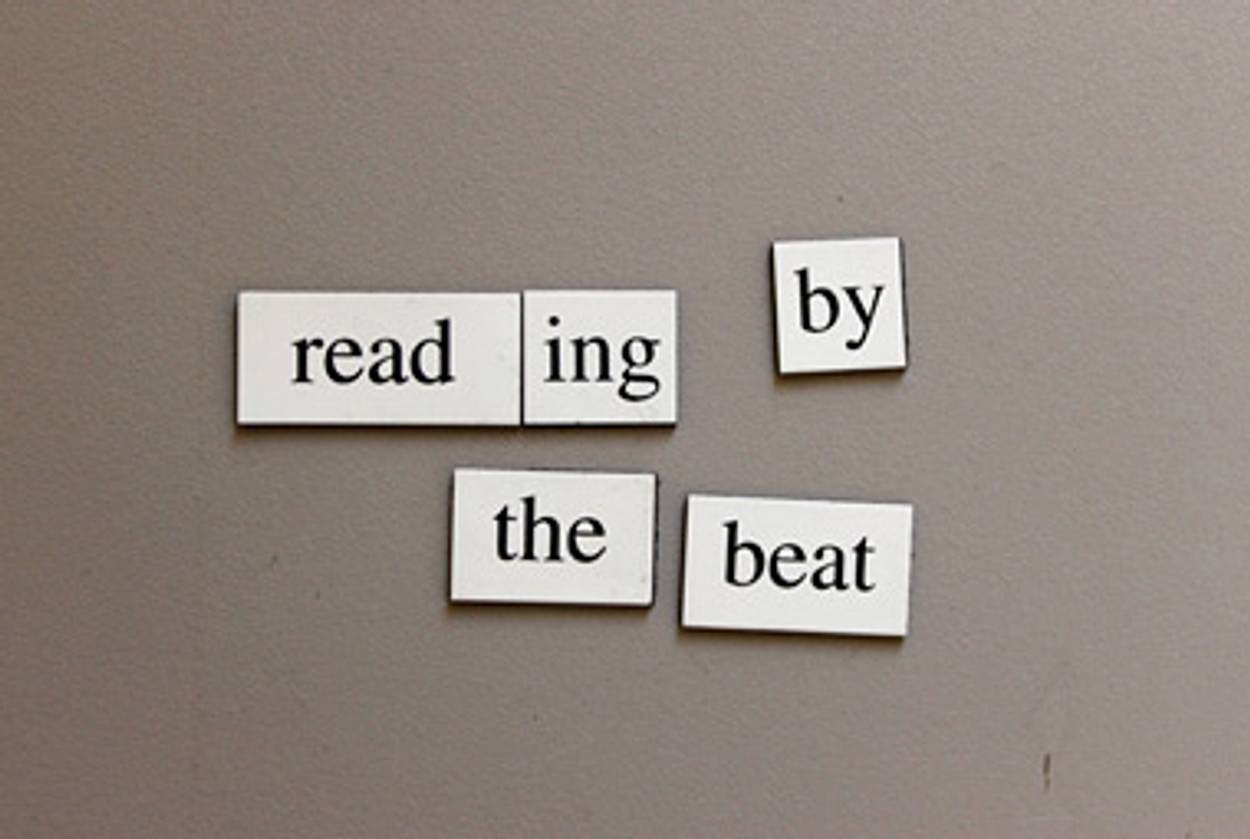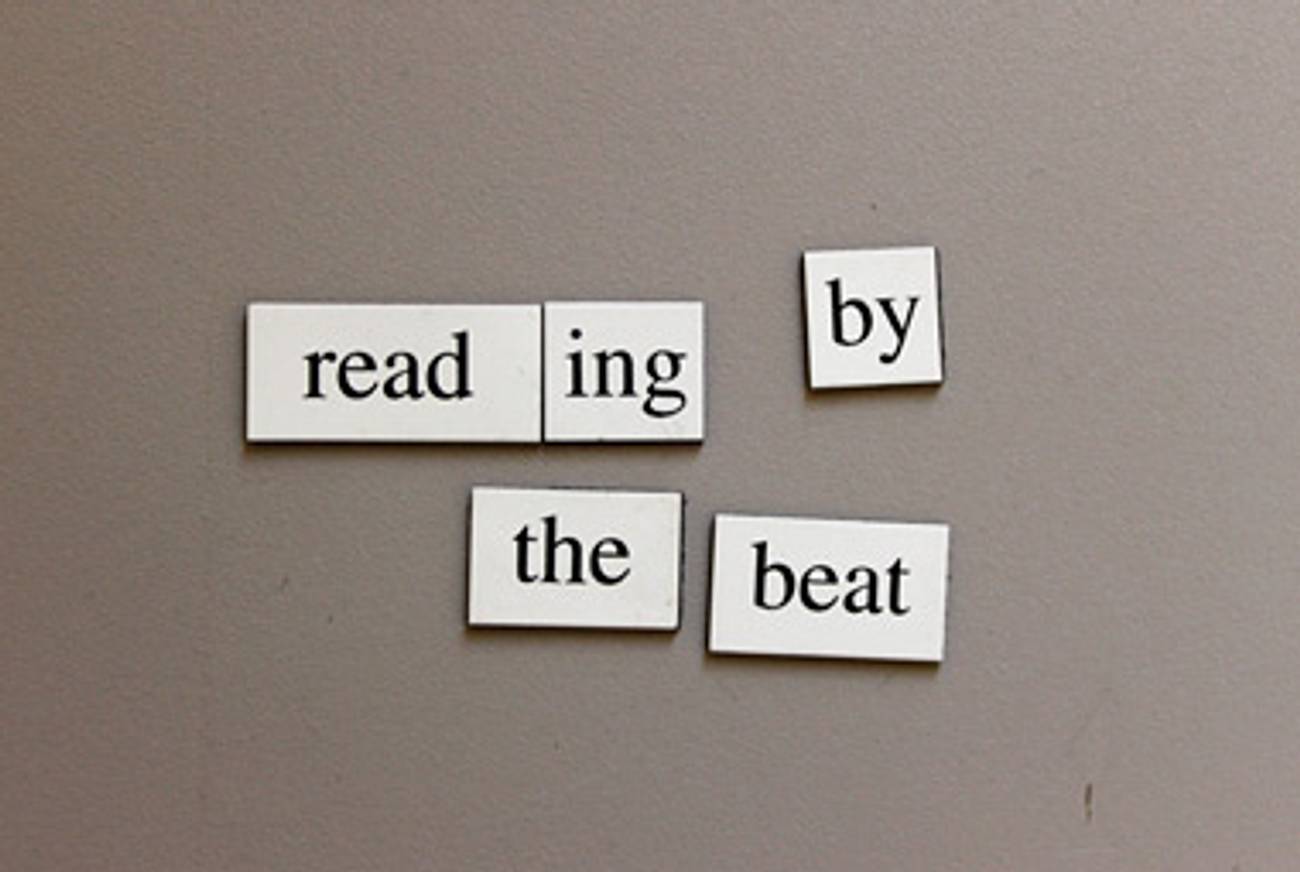Sensible Swoons
Charles Bernstein and the poetry of antic glee




The poet Charles Bernstein often writes badly but rarely writes poorly. I mean this as a compliment.
Bernstein is a master of his effects and as such, writes well, but he has spent more than three decades breaking the decorum of “good” poetry. He’s cracked wise, shattered syntax, and played havoc with grammar. Bernstein has gotten sentimental where he shouldn’t and waxed political where he could.
For all his avant-garde bobbing and weaving, Bernstein usually lets you know what his poetic experiments are all about. His new and welcome All the Whiskey in Heaven: Selected Poems (FSG) contains a number of signposts, like this one from “The Klupzy Girl”:
Poetry is like a swoon with this difference:
it brings you to your senses.
There, he’s done it. He told you. Or maybe not. Swoons aren’t supposed to wake you up and Bernstein doesn’t really make you swoon. He just wants you to pay attention to what in the world we can possibly do, as in “Dysraphism”:
Poem, chrome. “I
don’t like the way you think.”:
a mind is a terrible thing to spend.
That is, in prose you start with the world
and find the words to match; in poetry you start
with the words and find the world in them.
Don’t spend your mind, think with it. Read poems.
By Bernstein’s lights, poetry gives you the lowdown on the arrant stupidities that put us in our place. Bernstein has fun mixing and matching pre-fabricated language, making crazy salads with clichés. He writes in “Foreign Body Sensation”:
After two years at Met State, I became increasingly eager to work with severely disturbed children. I am beginning to dabble in writing screenplays, humor and poetry. What time is left I devote to coursework at the Divinity School, where I am studying for the priesthood. It seems I have done other things also, but maybe not.
The canned expressions of personal growth don’t express anything, least of all growth.
As an antidote to these inane turns of speech, Bernstein creates phrases that you have never dreamed of, sentences that defy grammar and obvious sense:
Mass of van contemplation to intercede crus of
plaster. Loots of loom: “smoke out”, kmerely
complicated by the first time something and don’t.
Long last, occurrence of bell, altitude, attitude of.
Bernstein isn’t interested in the standard canons of meaning here. A self-confessed utopian, he tries to get us to hear the echo of things that do not exist—at least not yet.
Of course, all this can be confusing and annoying, but Bernstein welcomes disruption and doesn’t really worry about being a noodge because he’s indulging in comedy, both high and low. On more than one occasion he has called himself a Groucho Marxian and his muse might well be that wonderful interchange between Groucho and Chico Marx in A Night at the Opera. “That’s in every contract,” Groucho says. “That’s what you call a sanity clause.” Chico replies: “You can’t a-fool a-me there ain’t no sanity clause.”
Groucho Marxism enters his poetry in any number of places. Here’s one:
…Or, as
They say in math, it takes two lines to make
and angle but only one lime to make
a Margarita.
Bernstein clearly loves a good punch line. He’s the Henny Youngman of contemporary verse. One of my favorite moments in Bernstein’s work does not appear in the Selected Poems, no doubt because it was actually a 60-second lecture given at the University of Pennsylvania:
My lecture is called “What Makes a Poem a Poem?” I’m going to set my timer.
It’s not rhyming words at the end of a line. It’s not form. It’s not structure. It’s not loneliness. It’s not location. It’s not the sky. It’s not love. It’s not the color. It’s not the feeling. It’s not the meter. It’s not the place. It’s not the intention. It’s not the desire. It’s not the weather. It’s not the hope. It’s not the subject matter. It’s not the death. It’s not the birth. It’s not the trees. It’s not the words. It’s not the things between the words. It’s not the meter. It’s not the meter—[timer beeps]
It’s the timing.
To dissect a joke is to murder it, but this little lecture, like so many of his poems, is about speed, especially when the timer goes off. The essence of Bernstein’s poetry is its antic glee.
Bernstein’s particular play with language—his puns and misapprehensions—marks him as a Jewish poet. He makes this point in “The Lives of the Toll Takers”:
The hidden language of the Jews: self-reproach, laden with ambivalence, not this or this either, seeing five sides to every issue, the old pilpul song and dance….
There is no plain sense of the word,
nothing is straightforward,
description a lie behind a lie
but truths can still be told.
That “old pilpul” song and dance shows up in Bernstein’s work not only in his insistence on seeing five sides to every issue, but also in his manic habit of seeing five sides to every word. Sure, the truth is out there, but it don’t come easy. It hides. It lurks behind or between the words, or, as the great rabbis would have it, in the marks that adorn the very letters on the page.
Bernstein is fascinated by the very stuff of words, their grunts, their sounds, the way they look on the page. In some of his recent poems, he turns away from the wild, wiseass disjunctions that were his trademark and toward a new/old kind of lyricism, an imitation of the forms and dictions of now discarded poetries:
Tuneless I wander, sundered
In lent blends of remote display
Until the bottom bottoms
In song-drenched light, cradled fold
It is less important to parse than to listen to that stanza and hear—something that has not been all that common in Bernstein’s poetry—a kind of pathos, a vulnerability.
At the same time, his political poetry has become more topical and more pointed, though no less funny:
War is never having to say you’re sorry.
War is the logical outcome of moral certainty.
War is conflict resolution for the aesthetically challenged.
War is a slow boat to heaven and an express train to hell.
War is either a failure to communicate or the most direct expression possible.
War is the first resort of scoundrels.
It says a lot about our situation that this list goes on for pages.
Bernstein’s work is not for everyone. It can’t be—that is the very nature of the avant-garde and of Bernstein’s particular brand of comedy. More’s the pity. The tummler has some important things to say. Especially when he says them well by writing them badly.
***
The title of Jeremy Sigler’s new book is Crackpot Poet.
Crackpot is a lovely word, no less lovely because it is archaic. (The Oxford English Dictionary defines a “crackpot” as someone “having a cracked brain or impaired intellect; a crazy person.”) Sigler isn’t crazy but his poems stand out because they are atavistic. They’re about sound, and a certain kind of sound at that.
The silliness in title of his poem “Gravitea” should give the game away:
State of
Still sit
I’m in it
yet out
of it
the potion
of my patience
tried
I dried
too soon to
be applied
wet
I went to
try out and
stepped out
of line
I let my
tea just be
a bag
in gravitea
Jokes, puns, a touch of echolalia: this poem lacks gravitas because it indulges in the pleasures of an old-fashioned kind of play.
An ear trained in the arcana of English literary history will hear in Sigler’s work a touch of the early 16th-century poet John Skelton’s “To Mistress Margaret Hussey”:
Merry Margaret,
As midsummer flower,
Gentil as falcon
Or hawk of the tower.
Skelton’s style fell quickly out of fashion, to be sure, but survives in nursery rhymes. We should take nursery rhymes seriously. They are the first poems that we ever learn.
It doesn’t matter that “Mary, Mary, quite contrary” might refer to Mary, Queen of Scots (and then again it might not), or that “Ring around the rosy” bears with it a dim memory or the Great Plague of 1665 (or then again it might not). Meaning is not what matters most in either the playground or in Sigler’s poems. In the end, it’s the rhythms and the songs that count.
David Kaufmann teaches literature at George Mason University.
David Kaufmann teaches literature at George Mason University.